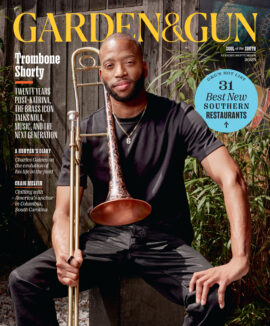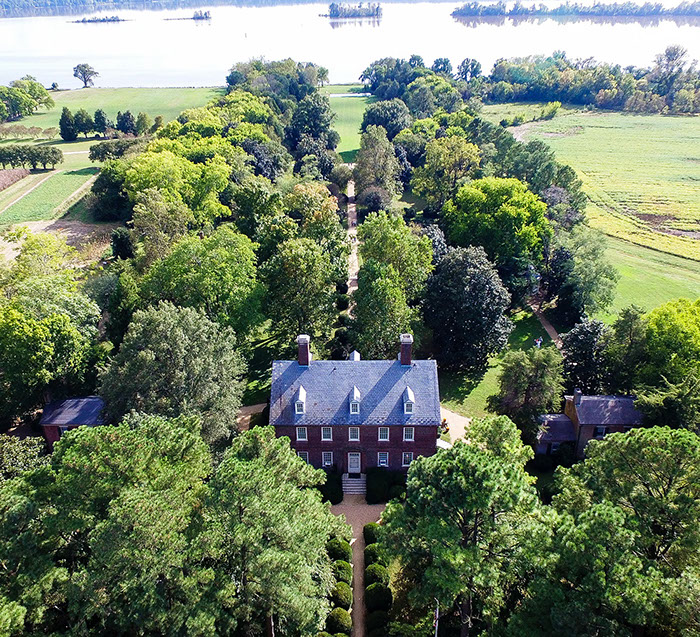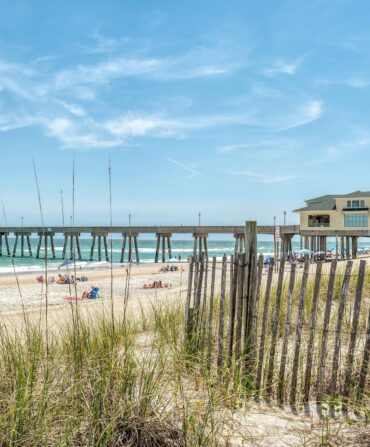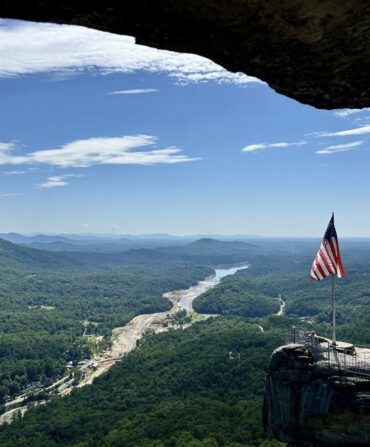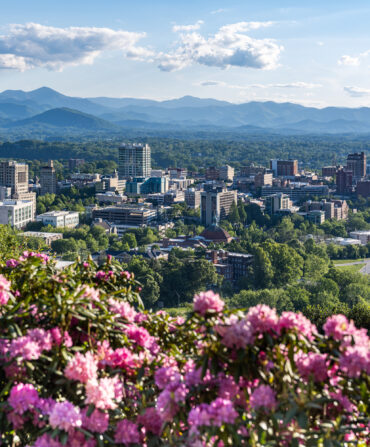Forget what you learned in elementary school about Plymouth Rock and the Pilgrims because it turns out that America’s first recorded English Thanksgiving—Native Americans had been giving thanks during the harvest season for centuries—was a Southern one, held in Virginia in 1619. The account was lost to history until Dr. Lyon Tyler, the son of President John Tyler and the head of the College of William and Mary, discovered mention of it in the Nibley Papers, which he found buried in the annals of the New York Public Library in 1931.

Photo: Courtesy of Berkeley Plantation
The front facade of Berkeley Plantation.
The papers held a first-hand report of Captain John Woodlief’s journey from Bristol, England, to the New World in 1619. Along with thirty-five settlers, Woodlief traveled across the Atlantic on the “Good Ship Margaret” and sailed up the James River to what is now Berkeley Plantation, where they made landfall on December 4, 1619—one year and seventeen days before the Pilgrims arrived in Massachusetts. Prior to setting out on their journey, the settlers received a proclamation from the Berkeley Company, who financed the trip, with a list of ten instructions. The first directive was to give thanks immediately upon arrival and to continue the practice “yearly and perpetually.” The ceremony was a simple one—not much more than a prayer of thanksgiving; and nothing like the Pilgrims’ three-day New England feast. The tradition continued each year until a 1622 Powhatan attack decimated the fledgling settlement.

Photo: Courtesy of Berkeley Plantation
A view of the James River from Berkeley Plantation.
Woodlief, who was in England at the time of the confrontation, eventually returned to Virginia, building his family home across the James River from the old settlement. Centuries later, the celebration came full circle in 1958 when Mac Jamieson, then the owner of Berkeley Plantation, invited Woodlief’s descendants to the property in early November to celebrate their forebear and that very first Virginia Thanksgiving. The family took up the “yearly and perpetually” call and returns to Berkeley annually for what has now become the Virginia Thanksgiving Festival, which hosted close to 3,000 guests last weekend. Borrowing at least one tradition from their Northern cousins, they now have turkey and all the fixings, too.

